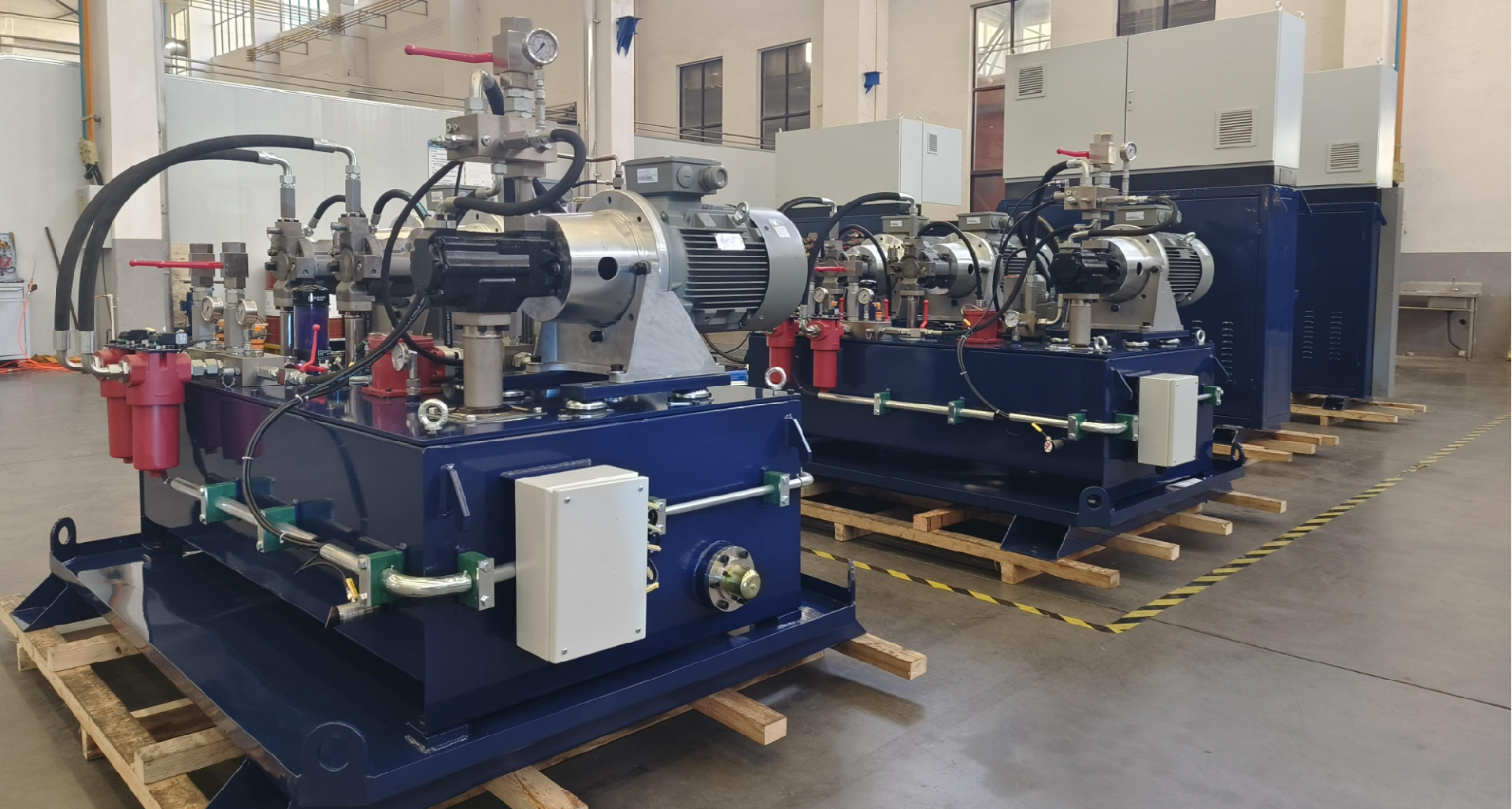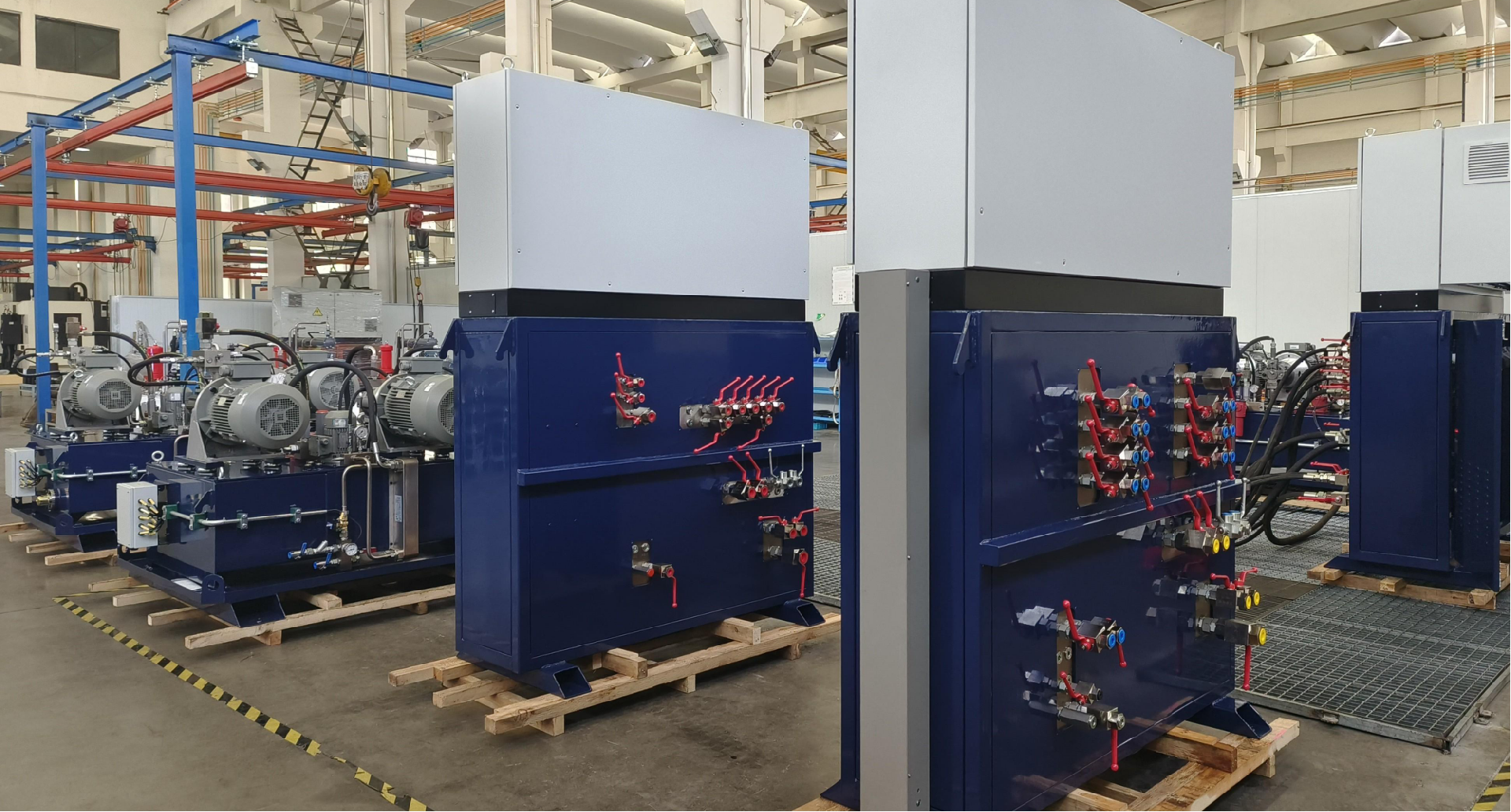
How to achieve energy conversion in compression hydraulic systems
Release Time :
2024-07-03
As an indispensable part of modern industry, the process of energy conversion in compression hydraulic systems is crucial for their efficient operation. This article will explore in detail how compression hydraulic systems achieve energy conversion, and summarize and summarize them in different points.

1、 The basic principle of energy conversion
In compression hydraulic systems, the conversion of energy mainly depends on hydraulic principles. The system converts one form of energy (such as mechanical energy, electrical energy) into another form of energy (such as pressure energy, kinetic energy) through the flow of liquids and pressure changes. This transformation process follows the law of conservation of energy, which means that in a closed system, energy cannot be generated or dissipated out of thin air, and can only be transformed from one form to another.
2、 Detailed process of energy conversion
1. Conversion of power source into pressure energy
The power source of a compression hydraulic system is usually equipment such as an electric motor or engine that can generate power. These power sources convert mechanical or electrical energy into pressure energy of liquids through hydraulic pumps (such as constant power hydraulic oil pumps). Under the action of the pump, the pressure of the liquid is increased, providing necessary power for the system.
2. Pressure energy can be converted into mechanical energy
When high-pressure liquid enters the hydraulic cylinder, the pressure of the liquid can be converted into mechanical energy that drives the piston to move. The movement of the piston can generate linear displacement or rotational motion, thereby driving the operation of mechanical equipment. In addition, precise control of mechanical equipment can be achieved by controlling the speed and direction of piston movement.
3. Conversion of mechanical energy into other forms of energy
In compression hydraulic systems, mechanical energy can be further converted into other forms of energy. For example, when the mechanical energy generated by the hydraulic cylinder drives the motor, the motor converts the mechanical energy into electrical energy, thereby achieving energy recovery and utilization. In addition, there may be other forms of energy conversion such as thermal energy and potential energy in hydraulic systems, which together constitute the complex energy network of the system.
3、 Efficiency and loss of energy conversion
During the energy conversion process of a compression hydraulic system, energy loss is inevitable due to factors such as internal friction and leakage. In order to improve the energy conversion efficiency of the system, a series of measures need to be taken to reduce energy loss. For example, selecting efficient hydraulic pumps and cylinders, optimizing system pipeline design, and reducing internal friction resistance in the system. In addition, the overall energy efficiency of the system can also be improved by recycling and utilizing thermal energy, potential energy, etc. from the system.

4、 Conclusion
The energy conversion process of a compression hydraulic system is a complex and delicate process that involves various forms of energy conversion and transmission. By deeply understanding the energy conversion principle and process of the system, we can better grasp the operating rules of the system, improve its energy efficiency and reliability. Meanwhile, with the continuous progress and innovation of technology, future compression hydraulic systems are expected to achieve more efficient and environmentally friendly energy conversion and utilization.
RELATED NEWS
2026-01-15
How Are Hydraulic Cylinders Used in Metallurgical Electric Furnaces?
Metallurgical electric furnaces play a crucial role in modern steelmaking and non-ferrous metal smelting processes. These furnaces operate under extreme conditions, including high temperatures, heavy mechanical loads, and continuous operati···
2026-01-15
How Does Our Hydraulic Cylinder Enhance Metallurgical Electric Furnace Control?
In metallurgical electric furnace systems—such as electric arc furnaces (EAF), submerged arc furnaces, and resistance furnaces—precise mechanical control plays a critical role in ensuring stable operation, energy efficiency, and equipment···
2026-01-08
What Drives Demand for Welded High-Pressure Cylinders?
Welded high-pressure cylinders play a critical role in the storage and transportation of compressed gases across multiple industries. Unlike seamless cylinders, welded cylinders are manufactured by forming and welding steel components, allo···
2026-01-08
How Do We Ensure Durability in High-Pressure Welded Cylinders?
High-pressure welded cylinders are widely used in industries such as energy, chemical processing, medical gases, and industrial manufacturing. Because these cylinders often operate under extreme internal pressure and harsh environments, dur···
2026-01-01
What Role Do Hydraulic Systems Play in Automation?
Automation has become a key driver of efficiency and consistency in modern industry. From manufacturing and material handling to construction and energy sectors, automated systems are designed to reduce manual intervention while improving a···
2026-01-01
How Can Custom Hydraulic Systems Improve Operational Efficiency?
Hydraulic systems are widely used in construction machinery, industrial equipment, mining, agriculture, and many other fields. While standard hydraulic systems can meet general requirements, they are not always the most efficient solution f···

GET YOUR FREE QUOTE
We will contact you within 24 hours. ( WhatsApp/facebook:13665121168)
